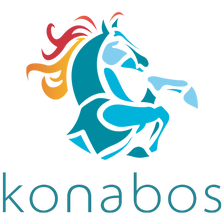The Future of Content
Bruce Davis-Goff - APAC Operations Director
25 Mar 2022
A question that often occurs to me around content is who owns it. Let’s say I have a headless setup. Possibly running on Contentful and pushing out to a Vercel CDN via a Next.js app.
The content itself is living on the Contentful servers, the images and video might be on Cloudinary, and the forms might be living on Jotforms. This is a common scenario with headless and cloud based micro-services.
Certainly, the de-centralization of this content provides an extra level of redundancy, it’s highly unlikely all services would go down at once, unlike a monolith CMS where the whole stack can fall over.
But in my mind, it does raise an issue around data sovereignty, if anything, Facebook has taught us is your content is all yours until the small clause in the T’s & C’s says it’s not. And when your content is spread around half a dozen micro-service providers, things become more complex.
Another point to consider is the intrinsic value of your content, we are used to living in a world where your content is given away for free, hopefully in return for engagement, traffic, and transactions. Google built an empire on this very notion and while we have seen many attempts to monetarize content, the nature of the internet means if you don’t want to pay, you can always find it somewhere else for free.
A good example is premium articles on the NZ Herald (https://nzherald.co.nz). It’s common to find premium articles on the Herald available free from CNN or The Guardian.
This in turn, leads me to pondering if content may have a future on the blockchain.
Trust and Fake News
The first issue that springs to mind is with immutability. Blockchain technology is very good at being a ledger but no so great at storing often changed content and this raises some issues:
- Content is editable, cryptocurrency isn’t. Part of the point of blockchain is to render a digital asset unmodifiable.
- Blockchain builds in anonymity, but that's not what usually matters in content management; it's more about the traceability - the surety that information is from trusted sources.
- Content is an essential feature of ECM's scalability; ECM systems must scale effectively and rapidly. Blockchain, by its nature, is computationally self-defeating when it comes to scaling - slow and deliberate.
- We don’t yet store our content in blockchain, but we can use blockchain technology to solve some of the problems of content management — to authenticate records and provide an audit trail of authorized interactions.
- Writing to blockchain is a resource-intensive task. It costs energy and therefore money. In fact, it costs a lot more than using some cloud storage or computing. So, you only really want to use it when you need to take advantage of blockchain properties, like execution of smart contracts or immutable ledger.
Side by Side
While blockchain doesn’t replace a content management solution, it can work alongside to build trust into the sharing of important information and as a tool for authenticating activities or information, blockchain is being studied for its potential to validate and build trust in online news and prevent misinformation.
There are many experimental document (content) management projects underway using blockchain in areas such as legal, healthcare, shipping etc. In addition, there are several firms now specializing in building document centric applications.
Web Content Management is at an earlier stage - but there are a few firms out there experimenting. Blockchain could have a big impact as it may bring better digital asset management to help monetize content.
There are some initiatives in this area like Yaliyomo, which claims to be the world’s first blockchain content management platform: https://yaliyomo.net/
Other Use Cases for CMS Blockchain
Content rights and royalties
Ernst & Young announced in 2018 that it was partnering with Microsoft to create a blockchain-based content rights and royalty management system for game publishing to create real-time transaction transparency. Sony also announced a similar project This model could be applied to many different entertainment and educational content types.
Validating news
Innovative technologies, such as blockchain, can help preserve the integrity of content, validate the reliability of information and/or its sources, enable transparency and traceability, and promote trust in news displayed on the Internet. In other words, it could even fix Facebook.
Digital signatures
Digital signatures certify the authenticity of information, but also rely on third-party trust. Distribution is through costly certificates which adds a maintenance burden to the overhead of handling the documents and files themselves. And third-party trust is certainly not guaranteed.
Blockchain solves this natively, data integrity and confidence in authorship are built in and this guarantees blockchain-wide application in information management.
Fact Checking
There is plenty of fact checking sites on the internet but who checks the checkers? An interesting initiative in this is Trive News: https://trive.news/Whitepaper.0.2.6x.pdf
Trive purports to be a blockchain-based effort that crowdsources fact-checking similar to Wikipedia, rewarding contributors with cryptocurrency. News that passes through such a crowd-based filter remains available, while news that fails doesn't. This style of information authentication is transparent and makes it hard for disinformation groups to perform successfully.
Social Media
Steem is a blockchain-based social media network that takes an approach similar to Trive, offering financial incentives to content creators with the idea of crowdsourcing approval/disapproval.
Providers of quality content get tokens tracked and delivered via CMS blockchain. The system rapidly identifies and sorts out the bad actors. A similar system could be applied to virtually any social media platform as the blockchain component is straightforward.
Decentralized Distribution
Currently, most content creators are not paid enough. An example is YouTuber Pewdiepie who earned $13 million in the year to June 2019. This is a good wedge for sure, but low considering that he has over 100 million subscribers. If each were willing to pay just a single dollar per year to watch Pewdiepie, his annual take would be 10 times more.
Sadly, this is the standard for many content industries, actors and musicians are paid well, but it’s the distributors that get the lions share. A great performance by an actor might net a million-dollar payday but the studio gets hundreds of millions in worldwide ticket sales. As blockchain technology becomes more ubiquitous, those who once profited from managing centralized content hubs will no longer be able to exercise the same degree of control over the system.
Summary
In conclusion, blockchain is a radical concept that will evolve and provide solutions for many different aspects of our lives and content management is not an exception. It may not happen overnight, but for those who are closely watching this new realm come to pass, they are already seeing a revolution in the making.

Bruce Davis-Goff
As a five-time Sitecore MVP, with 15 years of experience working with, and for Sitecore, Bruce brings a valuable depth of skill and experience and a commitment to best practice excellence.
Bruce is a passionate Sitecore Architect with specialist skills in SXA, strategy, migration, and upgrades and is a certified developer, trainer, and NZ Sitecore User Group / SUGCON organizer. His background as a Sitecore Business Development Manager, coupled with solid technical skills, and enthusiasm for getting the most out of Sitecore, means
Bruce brings value to any project and currently looks after operations for the APAC region.



Share on social media